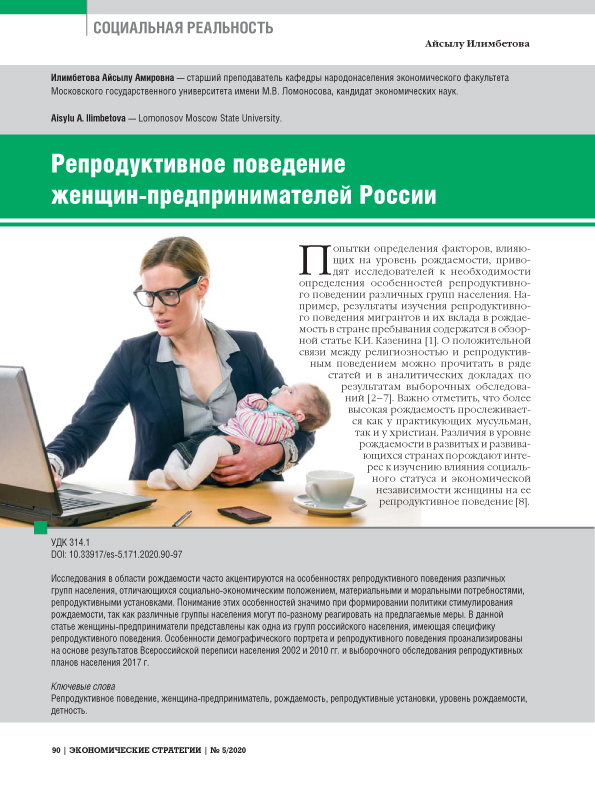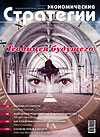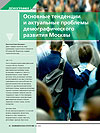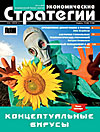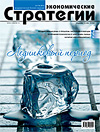2024 — Year of the Family. New Measures to Support the Birth Rate in Russia
DOI: 10.33917/es-4.196.2024.114-123
Recently Russia has been actively searching for a way out of the demographic crisis. A timely response to internal demographic problems became the Decree of the President of the Russian Federation V.V. Putin, according to which 2024 has been declared the Year of the Family. Focus on popularizing family values shows that the problem is becoming more and more pertinent, and no effective solutions have been found to date.
Demographic problem in general is widely discussed in Russia, attempts are made to reverse the negative trend with the help of various economic measures. However, any significant progress hasn’t yet been achieved. In this regard, new views and approaches to solving this problem are extremely in demand.
References:
1. Goncharova N.P., Eremin A.A., Tarasova E.V. K voprosu o metodike otsenki rezul’tativnosti demograficheskoy politiki. Demograficheskiy potentsial stran EAES: VIII Ural’skiy demograficheskiy forum [On the Methodology for Assessing the Effectiveness of Demographic Policy: Demographic Potential of the EAEU Countries: VIII Ural Demographic Forum]. Vol. II. Ekaterinburg, Institut ekonomiki UrO RAN, 2017, pp. 77–81.
2. Pasport natsional’nogo proekta “Demografiya” (utv. prezidiumom Soveta pri Prezidente RF po strategicheskomu razvitiyu i natsional’nym proektam, protokol ot 24 dekabrya 2018 g. N 16) [Passport of the National Project “Demography” (Approved by the Presidium of the Council under the President of the Russian Federation for Strategic Development and National Projects, Protocol of December 24, 2018 No. 16)], available at: http://static.government.ru/media/ files/Z4OMjDgCaeohKWaA0psu6lCekd3hwx2m.pdf
3. Demografiya [Demography]. Federal’naya sluzhba gosudarstvennoy statistiki, available at: https://rosstat.gov.ru/folder/12781
4. Federal’nyy zakon ot 19 maya 1995 g. N 81-FZ “O gosudarstvennykh posobiyakh grazhdanam, imeyushchim detey” (v red. Federal’nykh zakonov ot 24 noyabrya 1995 g. N 184-FZ, ot 18 iyunya 1996 g. N 76-FZ, ot 24 noyabrya 1996 g. N 130-FZ, ot 30 dekabrya 1996 g. N 162-FZ, ot 21 iyulya 1998 g. N 117-FZ, ot 29 iyulya 1998 g. N 134-FZ, ot 17 iyulya 1999 g. N 171-FZ, ot 10 iyulya 2000 g. N 93-FZ, ot 7 avgusta 2000 g. N 122-FZ, ot 30 maya 2001 g. N 66-FZ, ot 30 maya 2001 g. N 67-FZ, ot 28 dekabrya 2001 g. N 181-FZ, ot 25 iyulya 2002 g. N 116-FZ, ot 22 avgusta 2004 g. N 122-FZ, ot 29 dekabrya 2004 g. N 206-FZ) [Federal Law of May 19, 1995 No. 81-FZ «On State Benefits to Citizens with Children» (as amended by Federal Laws of November 24, 1995 No. 184-FZ, June 18, 1996 No. 76-FZ, November 24, 1996 No. 130-FZ, December 30, 1996 No. 162-FZ, July 21, 1998 No. 117-FZ, July 29, 1998 No. 134-FZ, July 17, 1999 No. 171-FZ, July 10, 2000 No. 93-FZ, August 7, 2000 No. 122-FZ of May 30, 2001 No. 66-FZ of May 30, 2001 No. 67-FZ of December 28, 2001 No. 181-FZ of July 25, 2002 No. 116- FZ of August 22, 2004 No. 122-FZ of December 29, 2004 No. 206-FZ)]. Ofitsial’nyy sayt Ministerstva truda i sotsial’noy zashchity RF, available at: https://mintrud. gov.ru/docs/laws/77





